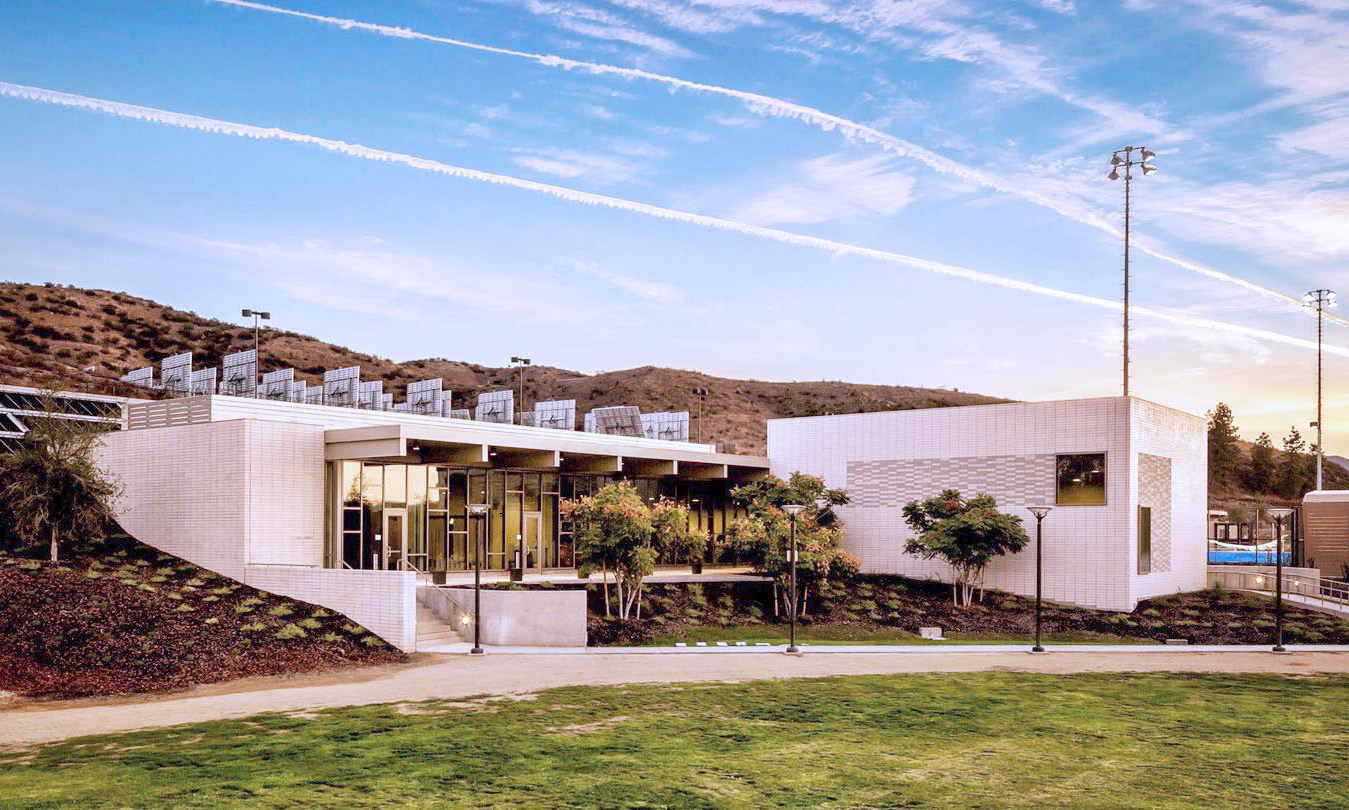A Sustainable and Zero-Net-Energy College Campus
Publish Date: March 14, 2023

Photo: Crafton’s Kinesiology, Health Education and Aquatics (KHA) Complex.
In January, the Division of the State Architect (DSA) announced the sustainable schools showcase building for the first quarter of 2023, the Kinesiology, Health Education and Aquatics (KHA) Complex at Crafton Hills College was featured.
The goal of the California Sustainable Schools Showcase is to create awareness of strategies that can be implemented in the development of a path to zero net energy, zero carbon, and an overall healthy sustainable school.
“We must be a leader as a campus to show not only do we care about our students but our communities and their well-being. Through sustainable buildings, we help lead the transformation to a clean energy future,” said CHC President Dr. Kevin Horan.
Guided by the San Bernardino Community College District’s commitment to sustainability, innovation, and energy efficiency, Crafton has implemented many sustainability strategies on its campus. The Kinesiology, Health Education and Aquatics (KHA) Complex is powered by 100 percent renewable energy from its nearby solar farm. The seven-acre solar farm, on the upper slopes of the campus, has a 140-panel solar array producing on-site renewable energy that supplies 50–65 percent of the electrical energy needed for the campus.
When it came time for additional space in the KHA Complex (containing fitness studios, offices, and an Aquatics Center), the campus focused on reducing its carbon footprint by blending the new addition into the existing structure using similar materials to create a seamless transition to the new space.
Taking advantage of the hillside, architects chose fully grouted concrete masonry units largely buried in the earth for the northern walls. The exposed walls, clad in masonry veneer with an air space in between, create a large thermal mass that absorbs heat during the daytime and releases it slowly at night, easing the loads on the building’s heating and air-conditioning systems. Floor-to-ceiling windows on the south facade allow daylight into the building and accentuate the views of different scenic points of the campus. The KHA Complex was certified LEED Platinum at its completion.
For more information and pictures visit: www.shorturl.at/iLPY2



